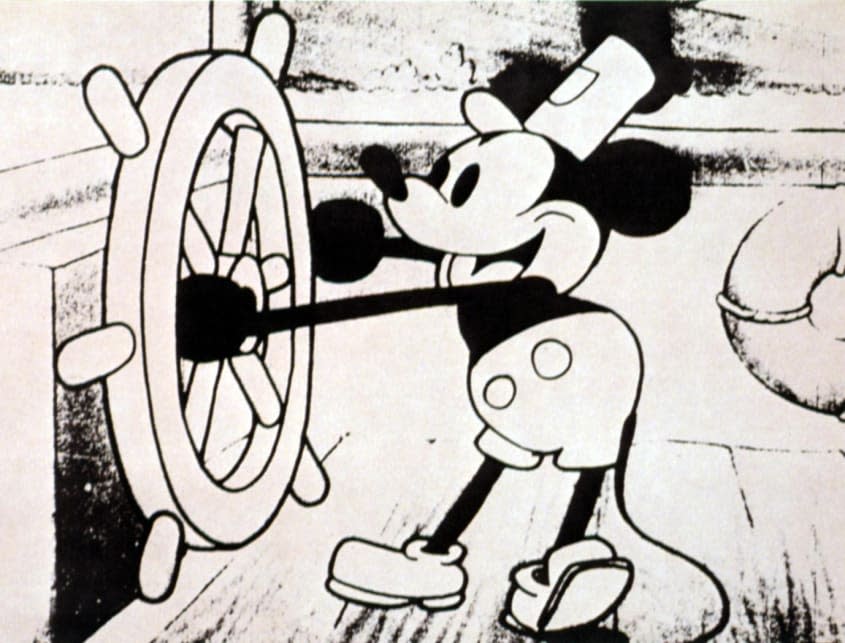Characters in the public domain, explained

For quite some time, copyright laws have shielded many iconic and well-known characters. However, since 2019, some of those existing copyrights have been expiring, meaning that those characters entered the public domain, as their owners lost exclusive rights to their likeness. Now, creatives can attempt to reimagine the characters without fear of litigious reprisals.
While many popular characters already exist in the public domain, there isn't much precedent for the impending wave of copyright expirations of iconic 20th-century cartoons, superheroes and literary heroes. Most notably, Disney's copyright over the original Mickey Mouse expires next year. Does that mean it will be a free-for-all for Disney's most iconic character?
What does it mean to be in the public domain?
Creative work not covered by copyrights or considered the intellectual property of anyone is viewed as part of the public domain. Anyone can use what's in the public domain without getting permission or compensating the owner. Some works, like the Bible, existed before copyright laws were created that have been publicly available. Other works enter the public domain after their copyright term expires.
Copyright terms differ across countries. Up until the 1970s, copyright terms in the United States lasted for only 56 years. With the Copyright Act of 1976, Congress extended the period to 75 years for corporate copyrights, or the author's life, plus 50 years for works created before 1978. Then in 1998, the Sonny Bono Copyright Term Extension Act extended both terms by 20 years. The act is also derisively called the Mickey Mouse Protection Act because Disney was one of the forces behind the push for the extension, just as the Mickey Mouse copyright was set to expire in 2003.
The U.S. Copyright Office noted that as a "general rule for works created after January 1, 1978, copyright protection lasts for the life of the author plus an additional 70 years." Most works created before 1978 will enter the public domain 95 years after the day it was published, or the creator's life plus 70 years.
Does that mean it's a free-for-all?
Not necessarily. Just because a character enters the public domain "doesn't mean anyone can use the character however they wish," Michael Grothaus explained in Fast Company. "U.S. copyright law is complex, and public domain comes with caveats." There are limits to what you can do to public domain characters.
First, new projects can only use public domain characters as they existed 95 years ago. For example, when Superman enters the public domain in 2033, new character variations must be based on how he appeared in DC Comics' "Action Comics #1" in 1938. That version of Superman didn't fly, and his costume was very different from the iconic suit the superhero is currently known for. If someone made a Superman movie in 2033 in which he could fly, Warner Bros. would have a case for copyright infringement "since DC gifted Superman with flight power later in the character's mythology and it would still own the copyright over that version of Superman," Grothaus added.
Legal experts say that trademark laws are another obstacle to using public domain characters. "A copyright reflects the physical image, but a trademark has a public meaning and perception that goes beyond that," attorney Robert Greener told Insider. "It's conceptual; the trademark covers brand identity."
Disney still holds the trademarks on the Steamboat Willie version of Mickey Mouse entering into the public domain next year, and trademarks don't expire as long as they are renewed. While copyrights protect from unauthorized reproductions, "trademarks are designed to protect against consumer confusion," The New York Times explained. "Boiled down, any public domain use of the original Mickey cannot be perceived as coming from Disney."
Earlier this year, we got a peak at what's possible when a character made iconic by Disney made it into the public domain. February's "Winnie the Pooh: Blood and Honey" morphed the helpful, cheerful honey-loving bear into a murderous slasher film villain. The creators plan to expand the universe with "Peter Pan's Neverland Nightmare" and "Bambi: The Reckoning." Both characters are already in the public domain. It remains to be seen if a similar fate awaits Mickey Mouse.
You may also like
Florida construction and agricultural workforces diminished after new immigration law takes effect
Judge limits how Biden officials can communicate with social media companies
How solar and wind energy are saving Texans from a record heatwave

